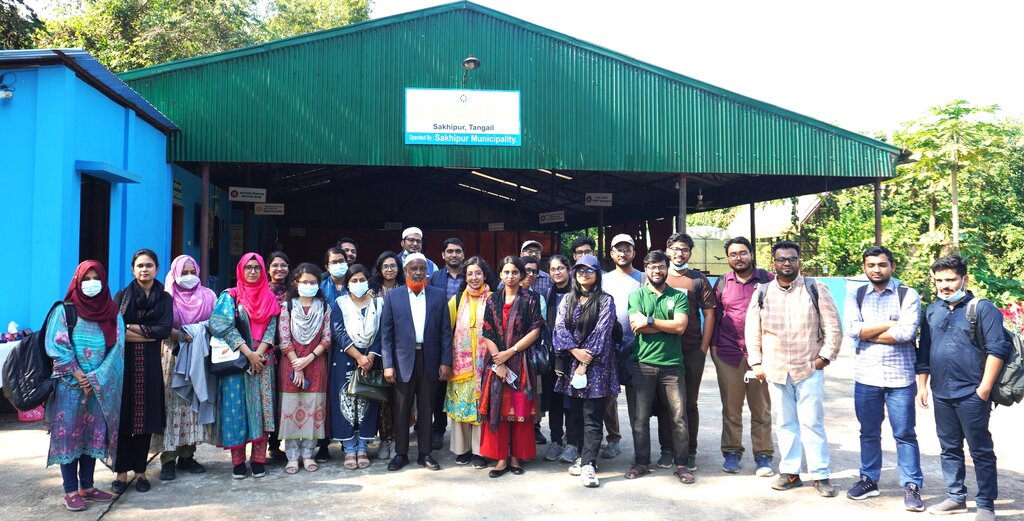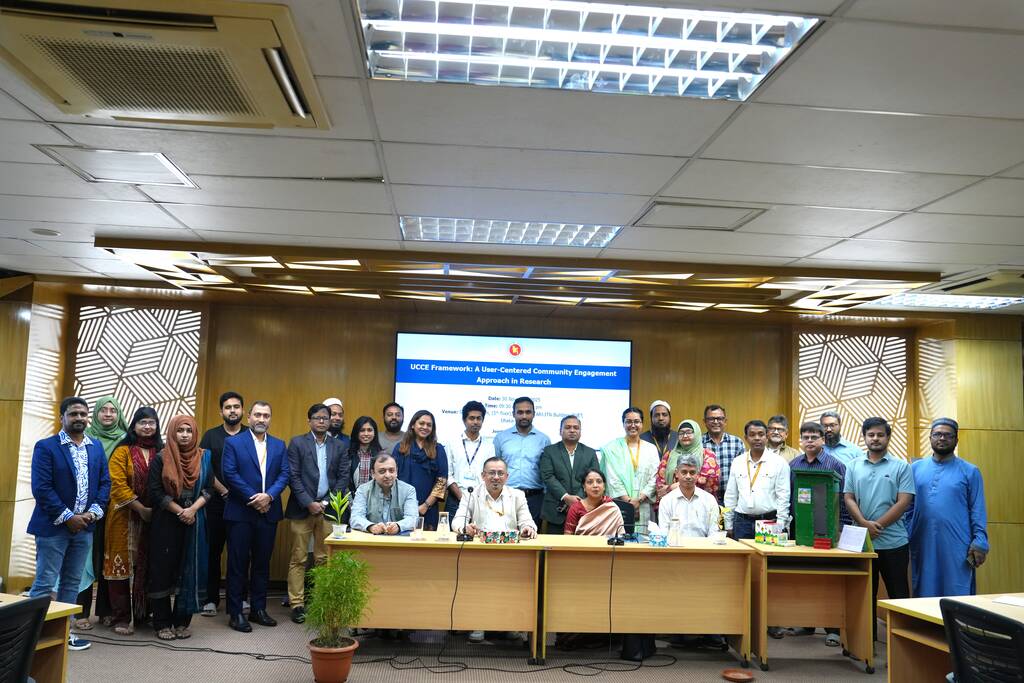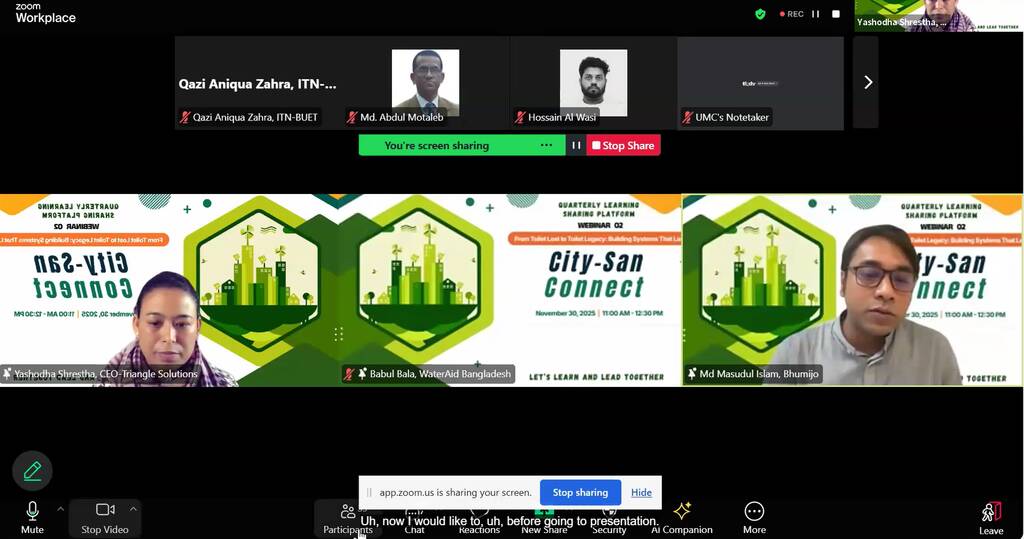ITN-BUET organized a comprehensive learning visit to Sakhipur, Tangail on December 3, 2024. In the learning visit, a total of 26 including 14 female post-graduate students from the Department of Civil Engineering at Bangladesh University of Engineering and Technology (BUET) participated. The visit aimed to enhance participants’ understanding of Fecal Sludge Management (FSM) and Solid Waste Management (SWM) by bridging theoretical knowledge with practical application. It featured comprehensive demonstrations and detailed explanations of waste treatment processes at the Fecal Sludge Treatment Plant (FSTP) and the Black Soldier Fly (BSF) Solid Waste Treatment Unit.
The visit commenced with an orientation session on the sanitation value chain. Following the briefing, students explore FSTP, which employs a systematic approach to fecal sludge treatment. The process begins with the collection of fecal sludge, which is transported and spread on unplanted drying beds for dewatering. The liquid byproduct is directed to a constructed wetland and polishing pond, where it undergoes natural filtration and treatment. Then it is sun-dried to remove pathogens. Afterwards, dried sludge is used for co-composting. An essential step in the co-composting process involves mixing dried sludge with sawdust and kitchen waste in a carefully calibrated 1:1:3 ratio. This mixture facilitates the production of nutrient-rich compost.



During the visit, students witnessed a live demonstration of desludging using a vacutug, a specialized vehicle designed for efficient sludge collection and transport. The plant representative explained the logistics of transporting sludges from Paurashava areas to the facility, emphasizing that sufficient vacutugs are available to meet operational needs. In addition, the students visited the BSF Solid Waste Treatment Unit, which leverages the lifecycle of black soldier flies to process organic waste. The flies consume organic matter and lay eggs that hatch into larvae and die, continuing this process simultaneously over a 45-day of lifecycle. This innovative approach to organic waste management reduces landfill burden and provides a sustainable solution for processing biodegradable waste.



The visit concluded with an interactive Q&A session, where students explored operational challenges and opportunities. One participant, Ms. Ananya Saha, inquired whether compost could be produced solely from fecal sludge, to which it was clarified that a combination of fecal sludge and solid waste in the correct proportions is essential to meet quality standards. Another question, posed by Mr. Sadab Ishraq Khan, addressed whether the treatment facilities’ distance from urban centers created transportation challenges. In response, the plant representative assured us that sufficient vacutugs and streamlined logistics ensure uninterrupted operations, effectively managing sludge transport from urban and peri-urban areas. In response to a query about the commercial viability of compost, it was noted that while the plant currently focuses on production for operational research and local applications, plans are underway to market compost in the near future.





